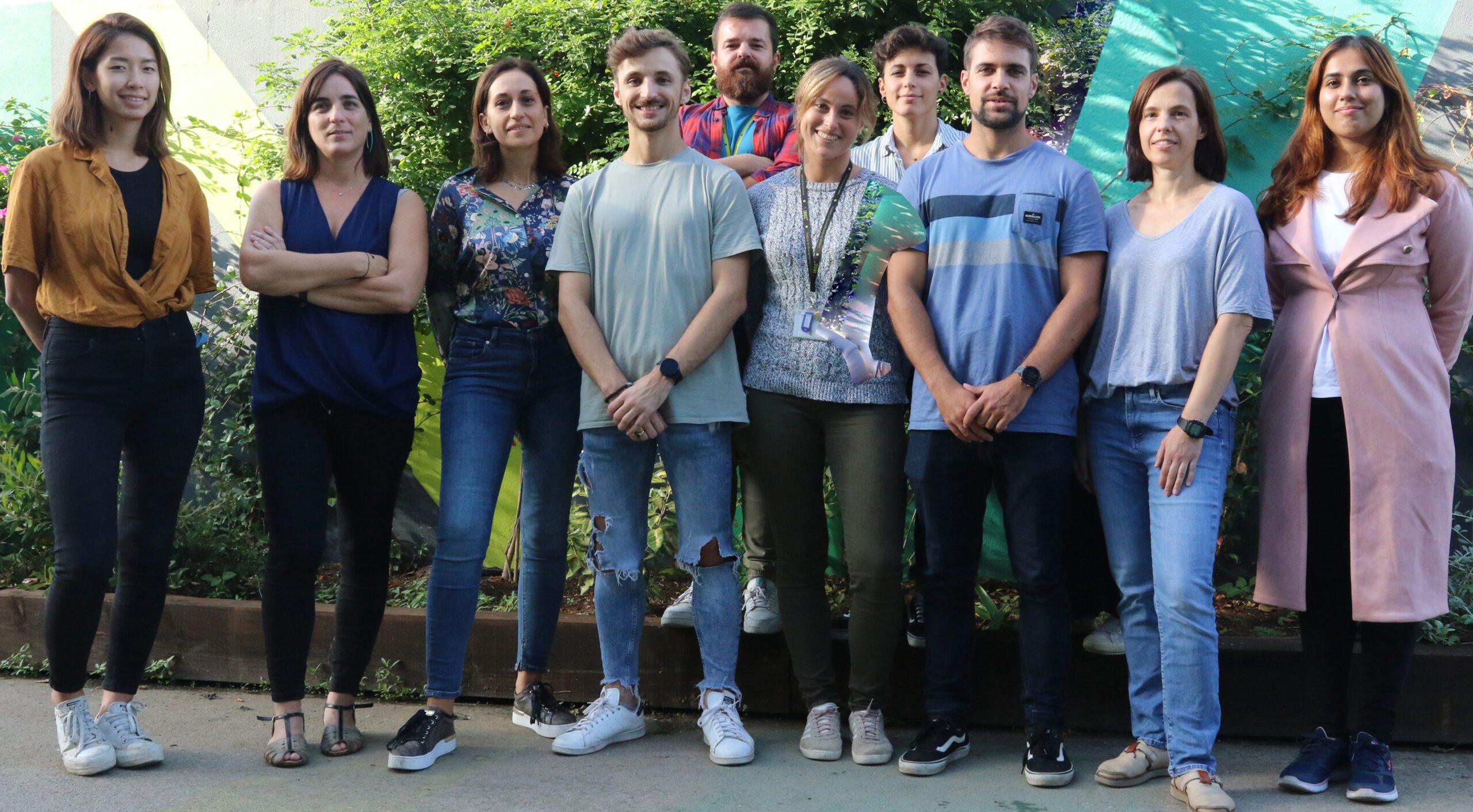About
The generation of induced pluripotent stem cells (iPSCs), especially the generation of patient-derived pluripotent stem cells suitable for disease modelling in vitro, opens the door for the potential translation of stem-cell related studies into the clinic.
Successful replacement, or augmentation, of the function of damaged cells by patient derived differentiated stem cells would provide a novel cell-based therapy for diseases. Since iPSCs resemble human embryonic stem cells (hESCs) in their ability to generate cells of three germ layers, patient-specific iPSCs offer definitive solutions for the ethical and histo-incompatibility issues related to hESCs. Indeed human iPSC (hiPSC)-based autologous transplantation is heralded as the future of regenerative medicine.
One of our aims is to generate and correct disease-specific hiPSCs for disease modelling and drug screening. The combination of gene-editing based methodologies together with the development of novel protocols for cell differentiation into relevant tissues/organs, provides a unique scenario for modelling disease progression, and the identification of molecular and cellular mechanisms leading to organ regeneration (Figure 1). In this regard we are particularly interested in generation of transgene-free and disease free patient derived hiPSCs for disease modelling and the discovery of novel therapeutic targets.
We believe that the recovery of tissue function should not be restricted to the development of cell replacement therapies. In this regard, in our laboratory we take advantage of organisms that possess the ability to regenerate such as zebrafish, in order to understand which molecular and cellular pathways lead to organ regeneration.
Surprisingly, studies in neonatal mice have demonstrated that soon after birth this organism posses the capability to regenerate its heart. Taking advantage of such preliminary observations we are translating such analysis in order to understand if the mammalian neonatal kidney still posses the capability to regenerate, and more importantly, if we are able to dissect the epigenetic and cellular mechanisms leading to those responses.
Lastly, and in an effort to fully develop in vitro and ex vivo platforms for organ regeneration, in our lab we are focused in the development of reporter cell lines for different transcription factors essential for tissue-specific commitment and differentiation (i.e: renal and cardiac lineages). The possibility to combine pluripotent stem cell lines together with decellularized matrices, functionalized biomaterials and ex vivo organoids offers and unprecedented opportunity for the immediate generation of patient-specific in vitro and ex vivo platforms for disease modelling and organ regeneration (Figure 2).
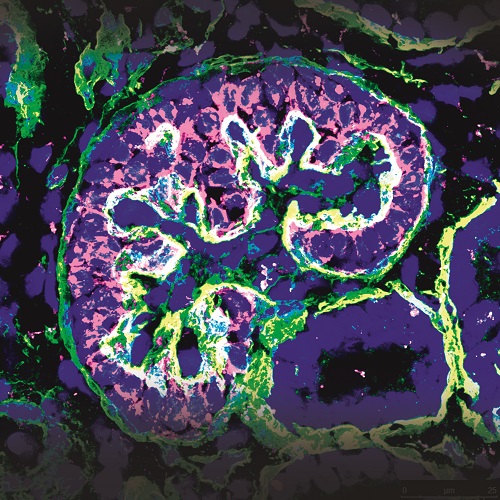
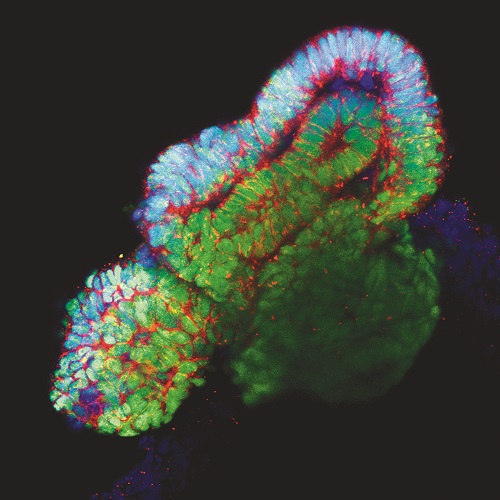
Staff
Projects
| NATIONAL PROJECTS | FINANCER | PI |
|---|---|---|
| Bioengeniería para mejorar la salud mediante de organoides y bioimpresión 3D (2021-2023) | MINECO – Plataformas ISCIII de apoyo a la I+D+I en Biomedicina y Ciencias de la Salud | Núria Montserrat |
| CARDIOPRINT Biofabricación avanzada multifunción en 3D para la generación de tejido cardiaco terapéutico a escala humana diseñado por ordenador (2021-2024) | MICIU, Proyectos de I+D+i en líneas estratégicas | Núria Montserrat |
| CAKUTORG Desarrollando nuevas estrategias para entender y tratar las anomalías congénitas del riñón y del tracto urinario mediante organoides (2021-2024) | MICIU, Retos investigación: Proyectos I+D | Núria Montserrat |
| Identifying SARS-CoV-2- host cell interactions exploiting CRISPR/Cas9 engineered human organoids: through the development of specific therapies against COVID19 (2020-2022) | FBBVA | Núria Montserrat |
| CHONDREG · Identification of the epigenetic mechanisms preventing chondrocyte de-differentiation: generation of novel therapeutic strategies for the treatment of cartilage chronic osteochondral lesions | CIBER | Nuria Montserrat |
| Infarto de miocardio en jóvenes. Factores epigeneticos y nuevos marcadores de riesgo cardiovascular. Efecto de la modulación de la expresión de microRNAs y long-non coding RNAs | ISCIII | (Collaborator) |
| INTERNATIONAL FUNDED PROJECTS | FINANCER | PI |
|---|---|---|
| ENGIORG Engineering kidney organoids to study the interplay between Tissue Mechanics and Metabolism: from development to disease (2021-2026) | European Commission | Núria Montserrat |
| ECaBox ECaBox “Eyes in a Care Box”: Regenerating human retina from resuscitated cadaveric eyes (2021-2025) | European Commission, FET OPEN | Núria Montserrat |
| Engineering functional human kidneys and urinary tracts (2021-2024) | Wellcome Leap Solicitation for Humans Organs, Physiology and Engineering (HOPE) | Núria Montserrat |
| BRAV3. Computational biomechanics and bioengineering 3D printing to develop a personalized regenerative biological ventricular assist device to provide lasting functional support to damaged hearts (2020-2024) | European Commission | Núria Montserrat |
| MAD-CoV 2 · Modern approaches for developing antivirals against SARS-CoV 2 (2020-2024) | European Commission | Núria Montserrat |
| R2U-Tox-Assay · Ready-to-use Toxicity Screening Assay based on iPS-Technologies (2020-2022) | EIT Health | Núria Montserrat |
| PRIVATELY FUNDED PROJECTS | FINANCER | PI |
|---|---|---|
| SYSTORG Exploiting organoid model systems to explore systemic conditions worsening COVID19: merging cellular and genetic engineering (2021-2024) | Fundació La Marató de TV3, TV3-Projectes de recerca La Marató TV3 | Núria Montserrat |
| Identificació de noves dianes terapèutiques i biomarcadors de progressió del càncer de ronyó a través de models organoides i xenoempelts genèticament dissenyats per CRISPR (2020-2023) | Fundació La Marató de TV3, TV3-Projectes de recerca La Marató TV3 | Núria Montserrat |
| REPIRE · Regenerating photoreceptors in human retinal organoids to establish a treatment for Retinitis Pigmentosa (2018-2021) | Fundación Bancaria “La Caixa” | Núria Montserrat |
| FUNDRAISING PROJECTS | FINANCER | PI |
|---|---|---|
| Programa Faster Future 2020: COVID-19 (2021) | Fundraising | Núria Montserrat |
| FINISHED PROJECTS | FINANCER | PI |
|---|---|---|
| Identification of Kidney Cancer progression targets and biomarkers through CRISPR-engineered organoids and xenograft mouse models (2019-2020) | Fundació La Marató de TV3 | Núria Montserrat |
| Generation of Isogenic Models of Clear Cell Renal Cell Carcinoma (ccRCC) using CRISPR-engineered Kidney Organoids, for the identification of diagnostic biomarkers (2017-2021) | Fundación AECC | Núria Montserrat |
| EPIORG · Cómo modelar la Nefropatía Diabética: restableciendo el epigenoma en organoides renales diabéticos inducidos (2018-2020) | MINECO, Retos investigación: Proyectos I+D | Núria Montserrat |
| MECHANORG · Como integrar señales mecánicas y metabólicas en organoides renales para el modelado de patologías humanas (2019-2020) | MINECO, Acciones Dinamización Europa Investigación | Núria Montserrat |
| Modelling Diabetic Nephropathy targeting DNA methylation: engineering the epigenome in kidney (2019-2020) | EFSD European Foundation for the Study of Diabetes | Núria Montserrat |
| REGMAMKID · How to regenerate the mammalian kidney (2015-2021) | European Commission, ERC-StG | Núria Montserrat |
| REPROMICRO · Reprogramacion y regeneracion tisular a partir de microvesiculas derivadas de celulas madre de pluripotencia inducida (2017-2019) | Ministerio de Economía y Competitividad, Explora Ciencia | Nuria Montserrat |
| Desarrollo de nuevas estrategias para el tratamiento de la enfermedad renal (2015-2017) | MINECO | Nuria Montserrat |
| TRATENFREN · Desarrollo de nuevas estrategias para el tratamiento de la enfermedad renal (2015-2017) | MINECO, Retos investigación: Proyectos I+D | Nuria Montserrat |
| Regenerative medicine for Fanconi anemia: generation of disease-free patient-specific iPS (2013-2016) | Fundació La Marató de TV3 | Nuria Montserrat |
| ACE2-ORG · Development of a human cellular plaform unveilling Angiotensin-converting enzyme 2 (ACE2) – sars-CoV-2 interactions (2020-2021) | ISCIII | Núria Montserrat |
| Red TERCEL · Red de Terapia Celular (2017-2021) | MINECO, ISCIII | (Collaborator) |
| EPIORGABOLISM Diabetic nephropathy modelling in hESC-derived 3D (2019-2021) | European Commission, MARIE CURIE – IF | Carmen Hurtado |
Publications
Equipment
- Real Time QuantStudio 5
- SimpliAmp thermocycler
- Eppendorf 5415D centrifuge
- Allegra X-15 R centrifuge
- Gyrozen 1248 centrifuge
- BioUltra 6 Telstar culture Hood 2x
- AH-100 Telstar primary culture Hood
- Binder CB 60 incubators 2x
- Controltecnica ASTEC SCA 165 incubator
- Controltecnica ZC 180 incubator
- Bioruptor Pico sonicator
- Thermomixer C thermal block
- Leica DMS1000 and DMIL Led microscopes
- Leica DMi1 microscope
- Leica MZ 10F magnifying glass
- Safe Imager 2.0 transilluminator
Collaborations
- Juan Carlos Izpisua Belmonte
Salk Institute for Biological Studies - Dr. Josep Maria Campistol Plana
Experimental Laboratory of Nephrology and Transplantation, Hospital Clínic, Barcelona - Peter Hohestein
The Roslin Institute, University of Edinburgh - Dr. Pere Gascón Vilaplana
Head of Oncology Service/Molecular and Translational Oncology Laboratory, IDIBAPS - Gloria Calderon
Embryotools SL - Pura Muñoz Cánovas
Departament de Ciències Experimentals i de la Salut, Universitat Pompeu Fabra - Dr. Pedro Guillén
Director Clínica Cemtro, Madrid - Dr. Francisco Fernández Avilés
Head of Cardiology Service, Hospital General Universitario Gregorio Marañón, Madrid - Dr María Eugenia Fernández
Unit of Cell Production, Hospital Gregorio Marañón, Madrid - Joaquin Gutiérrez Fruitós
University of Barcelona - Dr. Pere Roca-Cusachs
IBEC - Dr. Elena Martínez
IBEC - Dr. Cristina Eguizabal Argaiz
Centro Vasco de Transfusion y Tejidos Humanos (CVTTH), Bizkaia - Dr. Antonio Alcaraz
Head of Urology, Hospital Clínic, Barcelona - Dr. Oriol Casanovas
Head of Tumour Angiogenesis Group, IDIBELL
News
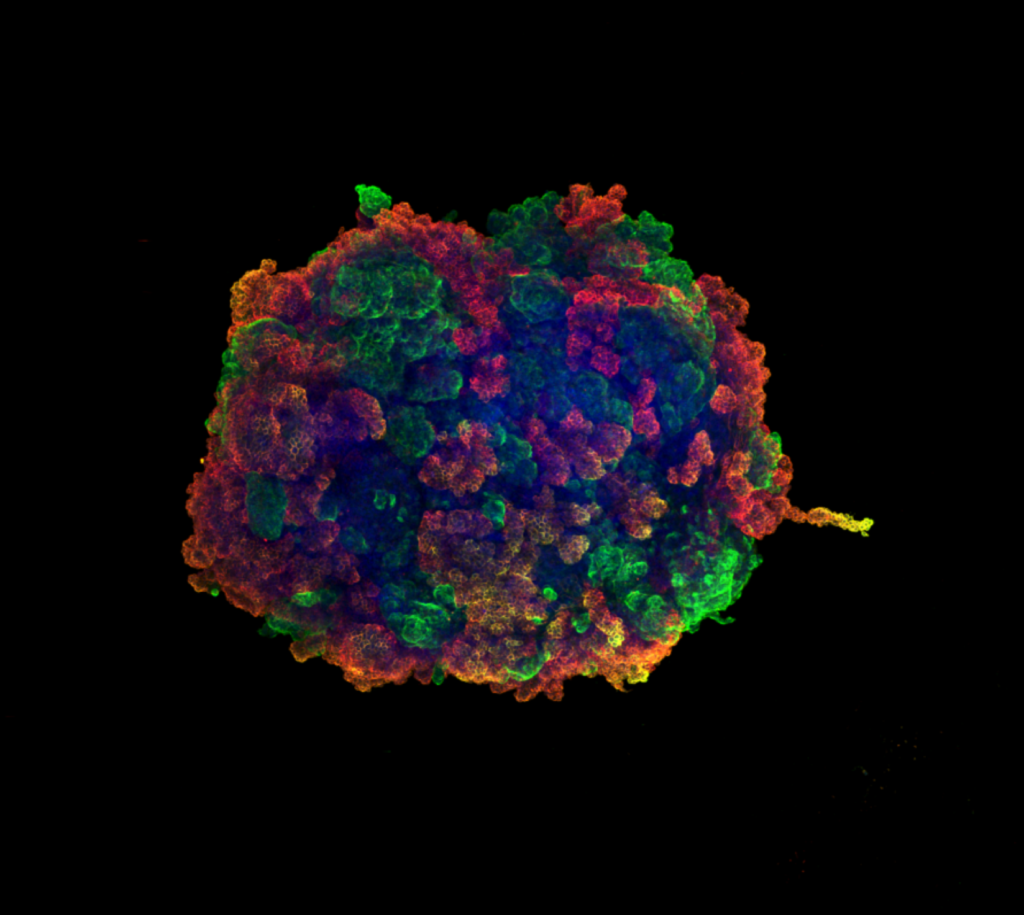
An international study co-led by IBEC identifies the genes that protect against kidney diseases
Researchers from the Institute for Bioengineering of Catalonia (IBEC), led by Dr. Nuria Montserrat, in collaboration with international researchers, have identified the genes that could protect the kidney from chronic damage. The identification was carried out using mini-kidneys created from human stem cells and generated in the laboratory using bioengineering techniques.
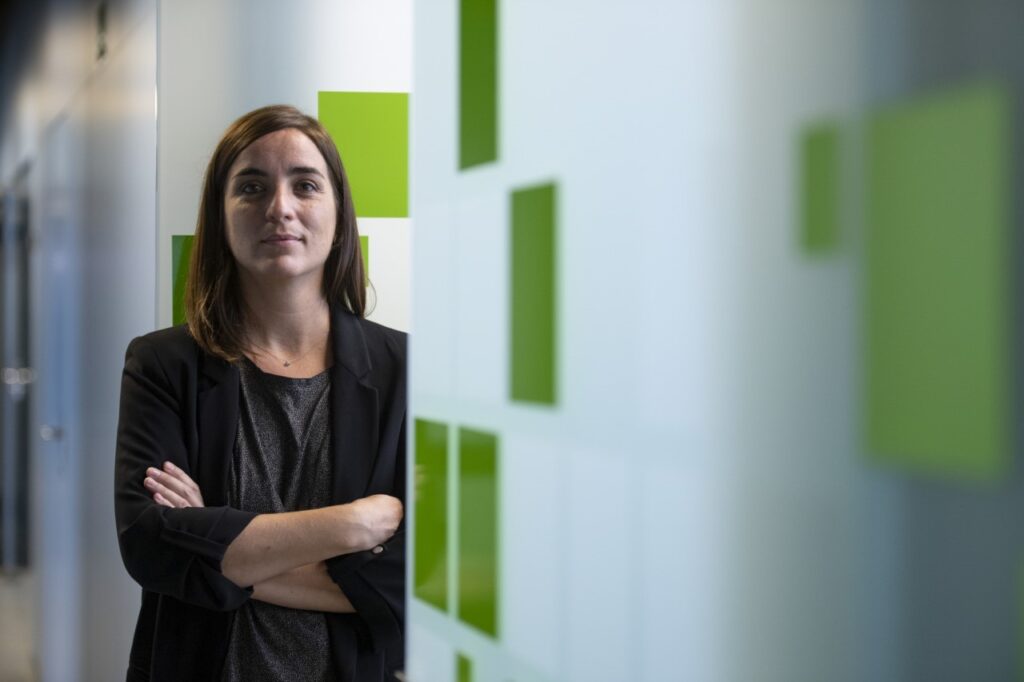
Nuria Montserrat awarded an “ERC Consolidator Grant” to study kidney diseases using bioengineered organoids
Nuria Montserrat, ICREA Research Professor and Group Leader at IBEC, has been awarded the prestigious “Consolidator Grant” from the European Research Council (ERC).
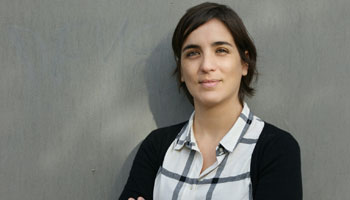
Nuria Montserrat joins EMBO
Nuria Montserrat has been selected to join EMBO, a prestigious network that brings together some of the most brilliant researchers in life sciences in the world. This year only 30 scientists have been selected among 216 candidates. The selected scientists will join the existing network of 73 current and 384 former members of the program.
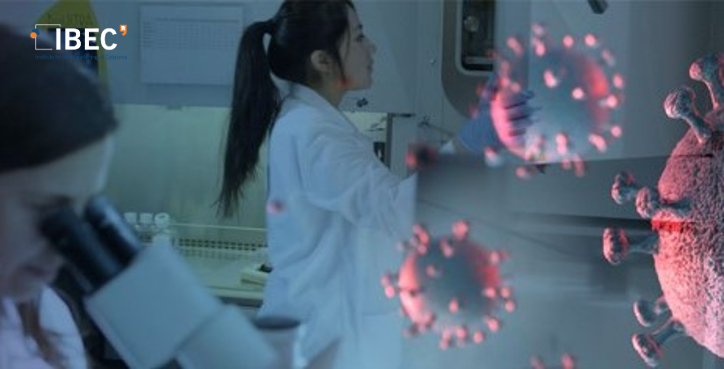
IBEC calls society to action to accelerate research against COVID19
The Institute for Bioengineering of Catalonia (IBEC) launches the Faster Future “A por la COVID19” campaign, with the aim of raising the 100.000€ needed to accelerate three research projects in collaboration with hospitals and patients associations.
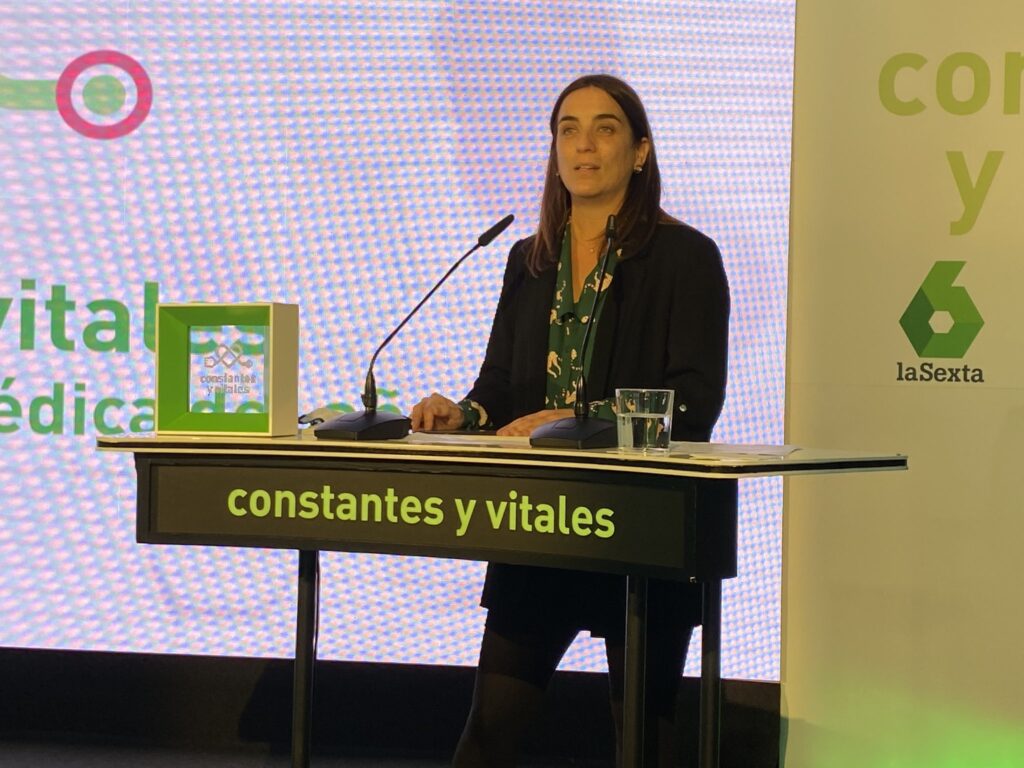
Nuria Montserrat, awarded for best biomedical publication
Nuria Montserrat, ICREA professor and group leader at IBEC receives the “Constantes y Vitales” award for the best biomedical publication of 2020 for her work with human organoids created with bioengineering techniques for the study of SARS-CoV-2.

Nuria Montserrat receives “Constantes y Vitales” award for the best biomedical publication of the year
IBEC researcher Nuria Montserrat receives the “Constantes y Vitales” award for the best biomedical publication of 2020 for her work with human organoids created with bioengineering techniques for the study of SARS-CoV-2.
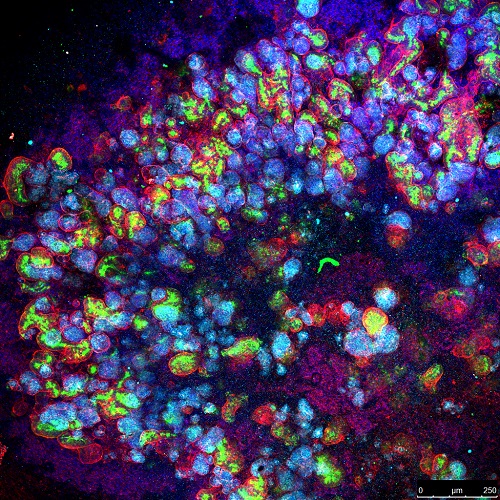
Unlocking the potential of human organoids through bioengineering
In a new review published in the prestigious scientific journal Nature Materials, IBEC experts discuss together with international experts from USA and Europe how bioengineering could be applied for the presentation of external inputs to better guide self-organisation and differentiation of human pluripotent stem cells (hPSCs) in order to generate higher-grade organoids
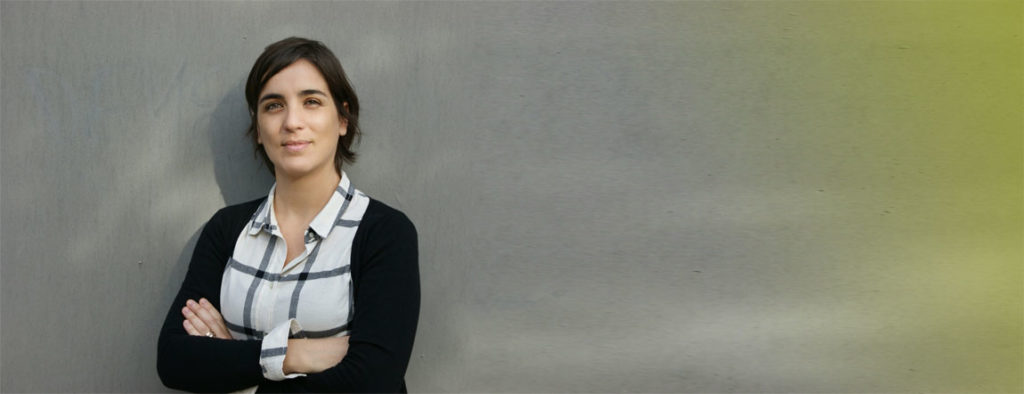
Núria Montserrat talks about coronavirus in “Catalunya Ràdio”
Núria Montserrat, group leader at IBEC is interviewed in the radio program “La poma de Newton” of Catalunya Ràdio talking about her research on the relationship between diabetes and Covid-19.
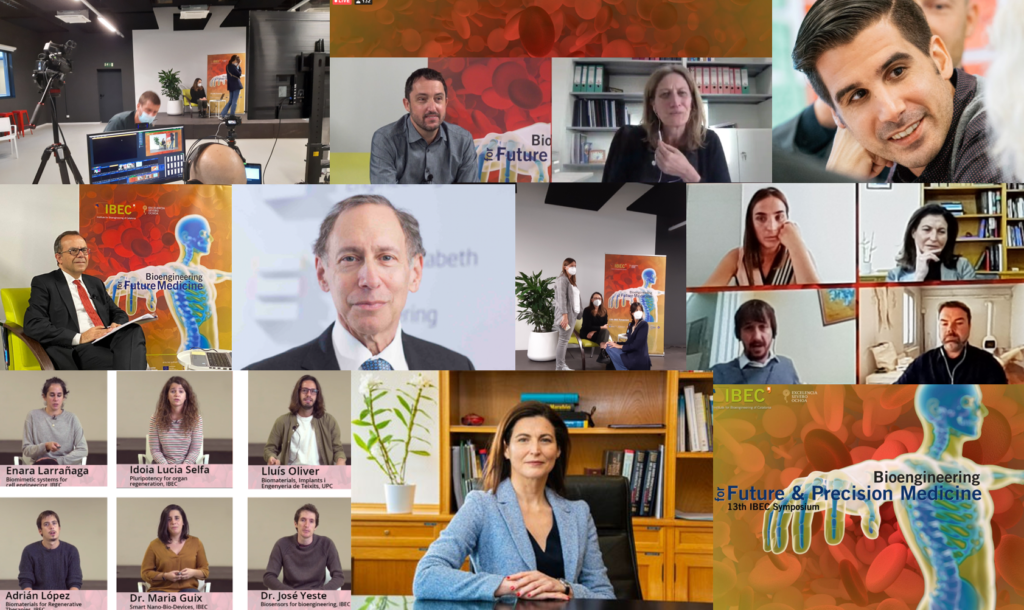
Great success of the 13th IBEC Symposium
The Institute for Bioengineering of Catalonia (IBEC) organized from the 27th to the 28th October its 13th Symposium. The event, that this year took place for the first time online, was focused on Bioengineering for Future & Precision Medicine. With more than 400 registered attendees, 18 flash presentations and 106 posters, the event also counted with contributions from top international speakers such as Robert Langer from the MIT, Ada Cavalcanti of the University of Heidelberg or Raquel Yotti, Director of the Carlos III Health Institute, among others.
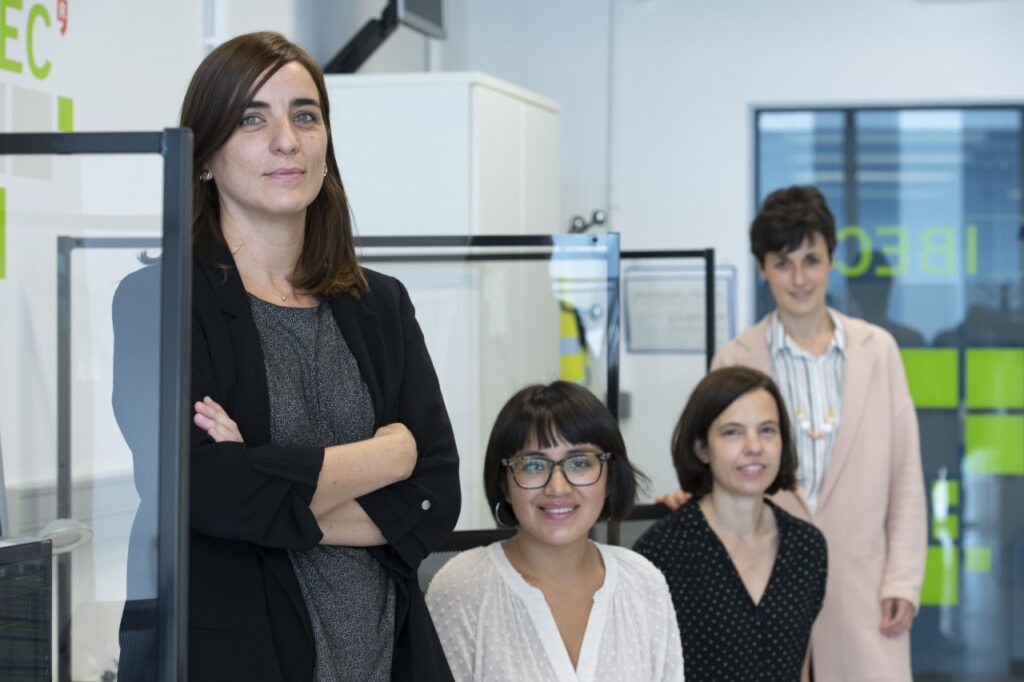
An IBEC project on COVID-19 receives funding from “Fundación BBVA”
Nuria Montserrat and her research team at IBEC, receive funding from “Fundación BBVA” to lead a research project on COVID-19. Montserat’s project is one of the 20 projects selected from among almost 1,000 proposals submitted to the call, which will receive a total of 2.7 million euros. The twenty projects selected to stop the coronavirus outbreak involve more than 400 researchers, who will approach the mechanisms of infection, diagnosis and treatment of this disease from different angles. The psychosocial and economic impact derived from the pandemic will also be studied.

